
Nicholas Berthelot Lemann is an American writer and academic, and is the Joseph Pulitzer II and Edith Pulitzer Moore Professor of Journalism and Dean Emeritus of the Faculty of Journalism at the Columbia University Graduate School of Journalism. He has been a staff writer at The New Yorker since 1999. Lemann was elected to the American Philosophical Society in 2022.

Soweto is a township of the City of Johannesburg Metropolitan Municipality in Gauteng, South Africa, bordering the city's mining belt in the south. Its name is an English syllabic abbreviation for South Western Townships. Formerly a separate municipality, it is now incorporated in the City of Johannesburg Metropolitan Municipality, and one of the suburbs of Johannesburg.
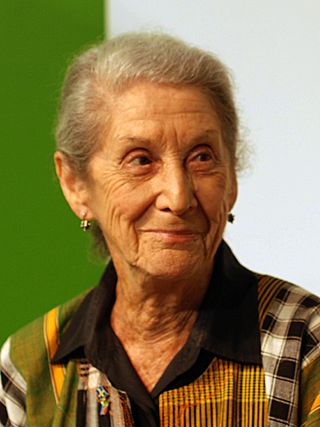
Nadine Gordimer was a South African writer and political activist. She received the Nobel Prize in Literature in 1991, recognised as a writer "who through her magnificent epic writing has ... been of very great benefit to humanity".
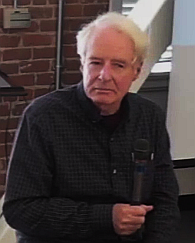
Adam Hochschild is an American author, journalist, historian and lecturer. His best-known works include King Leopold's Ghost (1998), To End All Wars: A Story of Loyalty and Rebellion, 1914–1918 (2011), Bury the Chains (2005), The Mirror at Midnight (1990), The Unquiet Ghost (1994), and Spain in Our Hearts (2016).
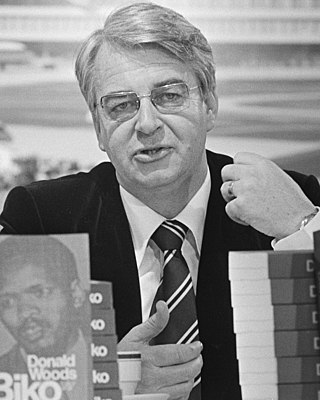
Donald James Woods was a South African journalist and anti-apartheid activist. As editor of the Daily Dispatch, he was known for befriending fellow activist Steve Biko, who was killed by police after being detained by the South African government. Woods continued his campaign against apartheid in London, and in 1978 became the first private citizen to address the United Nations Security Council.
Ely Jacques Kahn Jr. was an American writer with The New Yorker for five decades.
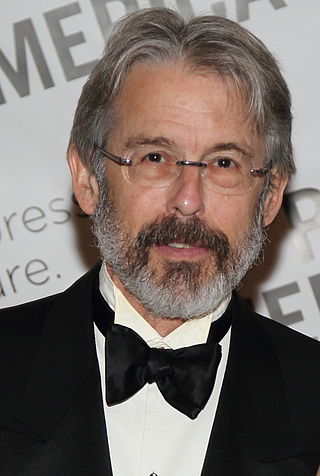
Hendrik Hertzberg is an American journalist, best known as the principal political commentator for The New Yorker magazine. He has also been a speechwriter for President Jimmy Carter and editor of The New Republic, and is the author of ¡Obámanos! The Rise of a New Political Era and Politics: Observations & Arguments. In 2009, Forbes named Hertzberg one of the "25 Most Influential Liberals in the U.S. Media," placing him at number seventeen.

Lawrence Weschler is an author of works of creative nonfiction.
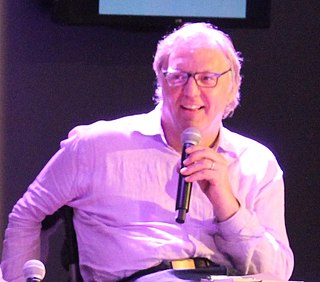
John Charles Hockenberry is an American journalist and author. He has reported from all over the world, on a wide variety of stories in several mediums for more than three decades. He has written dozens of magazine and newspaper articles, a play, and two books, including the bestselling memoir Moving Violations: War Zones, Wheelchairs, and Declarations of Independence, which was a finalist for the National Book Critics Circle Award, and the novel A River Out Of Eden. He has written for The New York Times, The New Yorker, Wired, The Columbia Journalism Review, Metropolis, The Washington Post, and Harper's Magazine.

Jeffrey Ross Toobin is an American lawyer, author, blogger, and former legal analyst for CNN.
Dexter Price Filkins is an American journalist known primarily for his coverage of the wars in Iraq and Afghanistan for The New York Times. He was a finalist for a Pulitzer Prize in 2002 for his dispatches from Afghanistan, and won a Pulitzer in 2009 as part of a team of Times reporters for their dispatches from Pakistan and Afghanistan. He has been called "the premier combat journalist of his generation". He currently writes for The New Yorker.
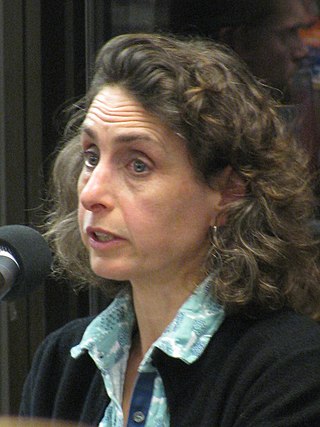
Elizabeth Kolbert is an American journalist, author, and visiting fellow at Williams College.
Ernest Levi Tsoloane Cole was a South African photographer. In the early 1960s, he started to freelance for clients such as Drum magazine, the Rand Daily Mail, and the Sunday Express. This made him South Africa's first black freelance photographer.
Peter Sexford Magubane OMSS was a South African photographer and anti-apartheid activist. He was also the personal photographer of President Nelson Mandela.
Alfred Khumalo, better known as Alf Kumalo, was a South African documentary photographer and photojournalist.

Timothy Modise is a South African veteran journalist, broadcaster, public speaker and philanthropist. Boasting over thirty years in broadcast media and journalism, Modise has worked for various radio and TV stations of the SABC, M-Net, Primedia, BBC and Power FM across different formats from music, current affairs and talk shows. He was inducted in the Radio Hall of Fame in 2011.

William Jelani Cobb is an American writer, author, educator, and dean of the Columbia Journalism School.
Matt Warshaw is a former professional surfer, former writer and editor at Surfer magazine (1984-1990), and the author of dozens of feature articles and large-format books on surfing culture and history.
Harvey Wood Tyson,, spent 70 years of his life writing for the print media. He began as a cadet newspaper reporter at the age of 18 before becoming a general and senior reporter; a political correspondent; a columnist, a newspaper editor, a private and published socio-political consultant and – in the decades after his formal retirement – an author of books, mainly popular non-fiction.
Jonathan Dubula Qwelane, known as Jon Qwelane, or by his initials JQ, was a South African journalist and radio talk show host who also served as the country's ambassador to Uganda in the 2010s. A pioneering and acclaimed black journalist, in his final years Qwelane was embroiled in a legal dispute as a result of a homophobic column that he wrote in 2008, that had important implications for the boundaries between hate speech and freedom of expression in South African law.











